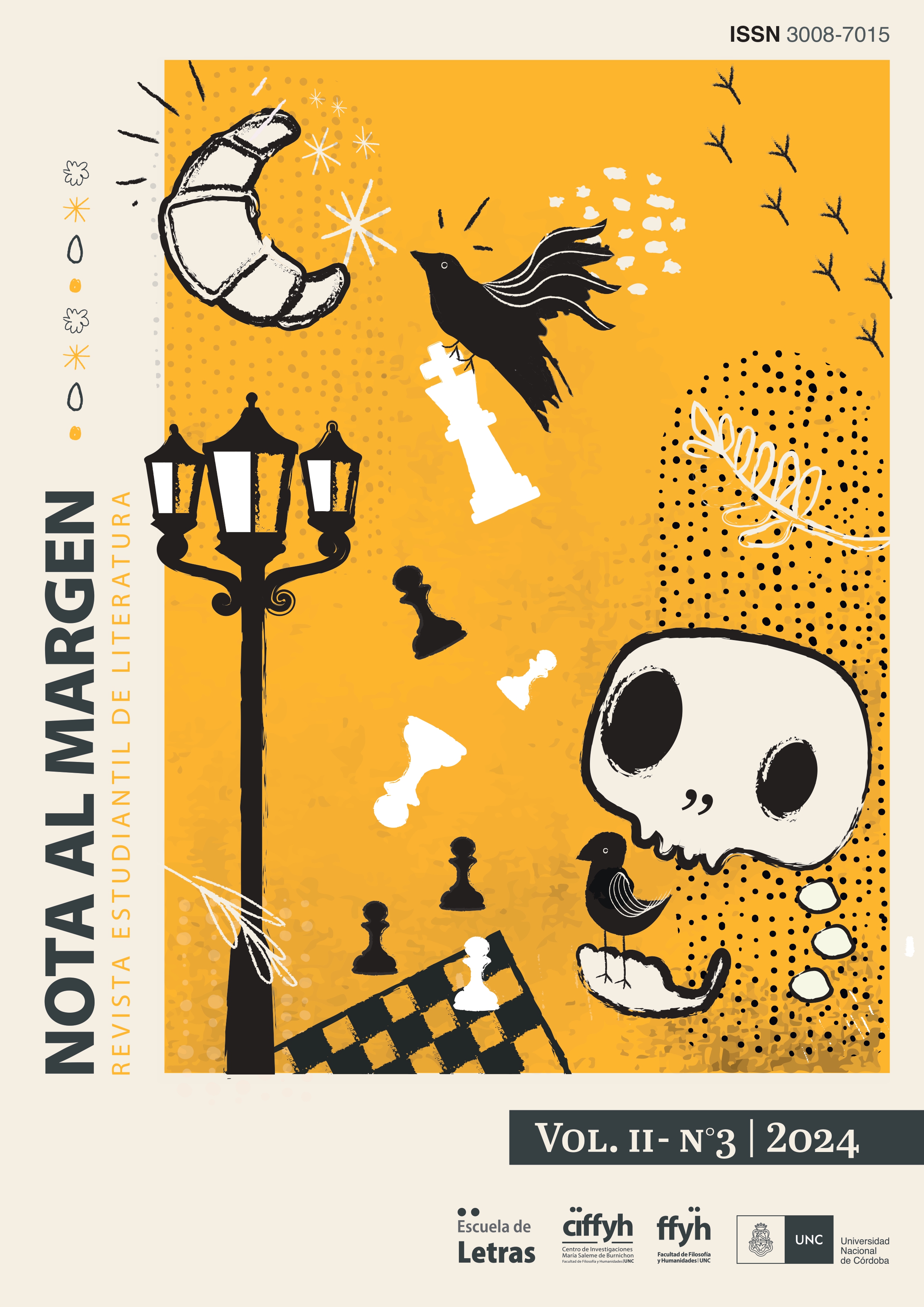Displacements of the Fantastic Genre and Refractions of the Political Context in Cortázar and Schweblin’s Short Stories
Keywords:
Cortázar, Schweblin, fantastic, politics, refractionAbstract
In this essay we will present a broad characterization of the fantastic genre that will allow us to investigate the ways in which the various texts that participate in it refract, problematize and interrogate its conditions of production. We will then analyze a series of texts that belong to the first two books of short stories written by Julio Cortázar —from the 20th century— and Samanta Schweblin —from the 21st century—. These pieces of work are not limited to a single interpretation; on the contrary, they allow us to derive numerous meanings. Firstly, we will introduce the canonical plot of the stories of this genre and, then, we will analyze the variations that occur in the short stories of these two great authors of Argentine literature. Furthermore, we will retrieve some classic interpretations of these short stories and we will also read in a different way, so as to consider the fantastic element —in the plots, the knowledge, the characters and the characterizations made by the narrators— and highlight the critical and transformative potential that this genre acquires in moments of profound social transformations.
References
Abraham, C. (2017). Literaturas de lo insólito. Una tipología. Revista Iberoamericana, 83 (259-260), 283-304. https://doi.org/10.5195/reviberoamer.2017.7501
Arán, P. (1999). El fantástico literario. Aportes teóricos. Narvaja.
Avellaneda, A. (1983). El habla de la ideología. Modos de réplica literaria en la Argentina contemporánea. Sudamericana.
Barrenechea, A. (1972). Ensayo de una tipología de la literatura fantástica. Revista iberoamericana, 38 (80), 391-403. https://doi.org/10.5195/reviberoamer.1972.2727
Borges, J. (s.f. [1921]). Anatomía de mi “Ultra”.
Cárdenas, N y Parra, J. (2021). Lo familiar y lo femenino en la narrativa de Samanta Schweblin. En Cuadernos de Filosofía Latinoamericana, 42 (124). https://doi.org/10.15332/25005375.6064
Cortázar, J. (2021). Cuentos completos 1 (1945-1966). Debolsillo.
Di Marco, G. (2010). Los movimientos de mujeres en la Argentina y la emergencia del pueblo feminista. En La aljaba, 14, 51-67.
Dulitzky, A. (2011). El escritor desclasado: Julio Cortázar y la sociedad argentina del peronismo clásico. En Pensar. Revista de epistemología y ciencias sociales, (5), 29-37.
Feiling, C. (1997). La pesadilla lúcida. Apuntes sobre el género de terror. En Los mejores cuentos de terror. Un recorrido por las galerías del miedo. Ameghino.
Freud, S. (1976). Lo ominoso. En Obras completas (Vol. XVII). Amorrortu.
Gómez, S. (2015). Un ejercicio de imaginación: crítica, peronismo y Cortázar. http://hdl.handle.net/11086/547309
Jitrik, N. (1971). El fuego de la especie: ensayos sobre seis escritores argentinos. Siglo XXI.
Verón, E. (1993). La semiosis social. Gedisa.
Schweblin, S. (2018). Pájaros en la boca y otros cuentos. Random House.
Published
Issue
Section
License
Copyright (c) 2024 Bruno Fraticelli

This work is licensed under a Creative Commons Attribution-NonCommercial 4.0 International License.
Usted es libre de:
Compartir — copiar y redistribuir el material en cualquier medio o formato.
Adaptar — remezclar, transformar y contruir a partir del material.
La licenciante no puede revocar estas libertades en tanto usted siga los términos de licencia
Bajo los siguientes términos:
Atribución — Usted debe dar crédito de manera adecuada,
brindar un enlace a la licencia, e indicar si se han realizado cambios.
NoComercial — Usted no puede hacer uso
del material con propósitos comerciales.












